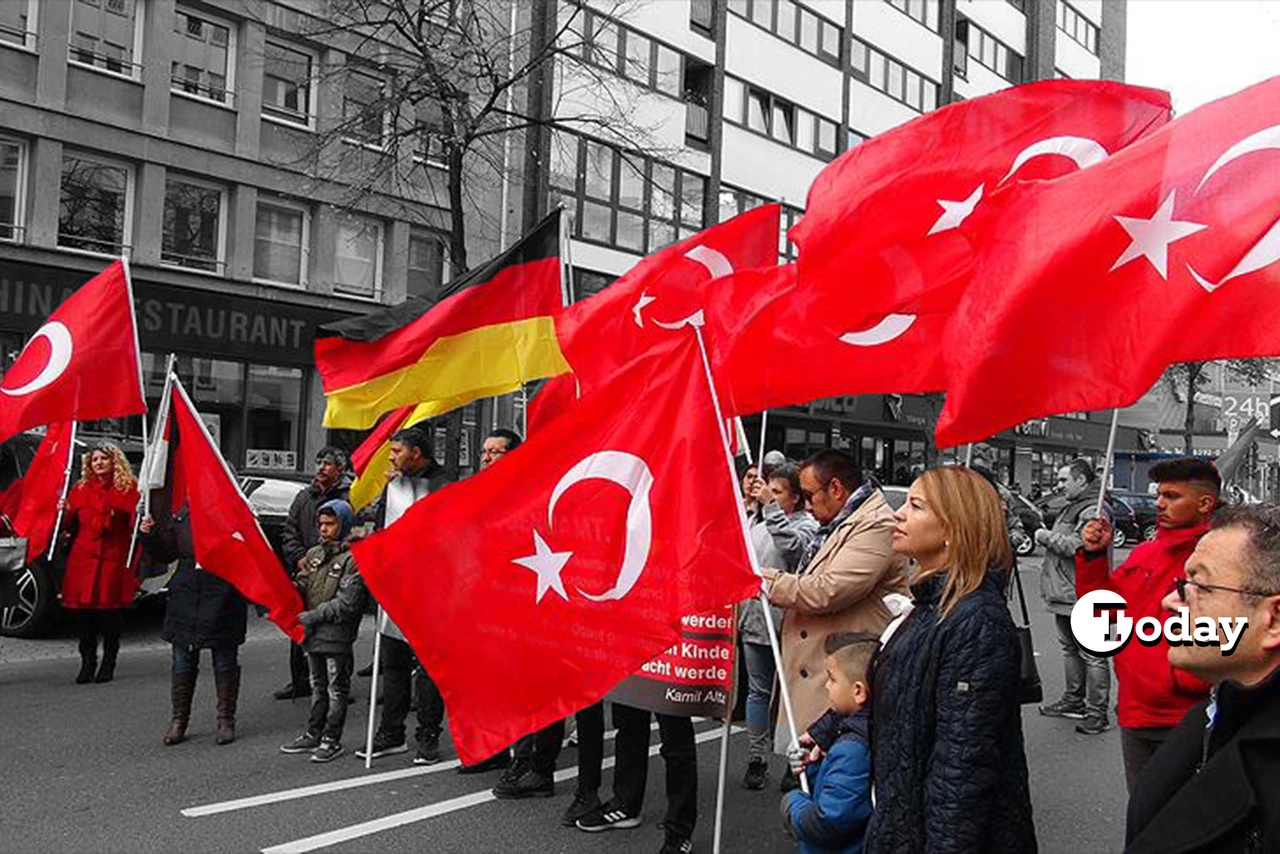Exclusive interview: Germany gears up for elections—what’s at stake for Turkish minority?
 Turkish minority in Germany. (Photo AA).
Turkish minority in Germany. (Photo AA).
Germany is going to early general elections for its Bundestag Parliament on Feb. 23, with results that will have far-reaching implications on Germany, the European Union, and the Turkish German community as well as Türkiye.
A noteworthy development has been the German right’s Alternative for Germany Party (AfD) rising in the polls and reaching roughly 20% support nationwide—doubling their support base in less than half a decade. Reports are emerging that the Turkish minority in Germany is also increasingly putting its weight behind the AfD. An intriguing development of the Turkish diaspora voting behavior at large as Türkiye Today interviewed experts back in November 2025 that revealed the Turkish minority in the U.S. had increasingly supported and helped elect President Donald J. Trump in presidential elections.
Türkiye and Germany share a deep-rooted, historic bond that stretches over the centuries, which includes a strong business and industrial partnership, a foreign policy that appears to be aligning closer with Türkiye moving forward and a robust Turkish community in Germany believed to be around 3 million.
With unprecedented challenges facing Europe, the European Union’s largest populace taking to the polls will undoubtedly have a profound impact. The unprecedented nature of unfolding events mostly domestic led Chancellor Olaf Scholz’s coalition government to collapse in November 2024 over economic mismanagement and debt—months later however is also a Europe awakening to the Ukraine war ending.
To deep dive into this topic Türkiye Today interviewed Aydin Enes Seydanlioglu, an author and key expert on Turks in Germany.

- What is the significance of early elections to be held on Feb. 23 in Germany?
Germany is approaching an important turning point after 20 years of stability. The collapse of the coalition government and the dissolution of the Bundestag marks the beginning of a significant transformation process in the country. Global developments that affect Germany before the election are also quite important.
The COVID-19 pandemic, the Russia-Ukraine war, the energy crisis, and disruptions in supply chains after the coronavirus pandemic highlight major challenges Germany is facing. Additionally, Germany’s infrastructure issues and its lag behind global competitors such as China and the U.S. in disruptive technologies present a critical threat to the country’s economic future.
The changing role of the U.S. in global politics and tensions in transatlantic relations following Trump’s rise to power also increases the significance of this election for the future of the European Union. For these reasons, the elections on Feb. 23 could be decisive for Germany’s future.
- Could there be an unexpected surprise in this election?
This election presents a situation open to surprises in many ways. Polls predict that the Christian Democrat Union of Germany (CDU) and Christian Social Union in Bavaria (CSU) alliance will come first, but the AfD’s share of the vote is expected to almost double compared to previous elections.
Moreover, the possibility of the Social Democratic Party of Germany (SPD) becoming the third-largest party in parliamentary arithmetic for the first time in its history is a noteworthy development. The positions of the three parties near the threshold (FDP, Die Linke, BSW) also make this process exciting. This uncertainty makes it difficult to predict election results, adding even more excitement.

- What are the notable aspects of party policies in these election campaigns?
Two main agendas are emerging in these elections: migration and the economy. The association of irregular migrants, particularly with criminal cases, largely shapes the election campaigns.
Social Democrats and the Greens, who have supported immigration policies for years, have pledged to make significant changes to border security by reviewing their security policies in this election. Additionally, with the exception of the Left Party and BSW, all other parties have agreed to increase military spending. These two key issues are critical topics that will directly affect Germany’s future and the living standards of its people.
- What about the voting tendencies of the Turkish community in Germany?
Around 7 million German citizens with a migration background, either directly or through a parent, will vote in this election. Some sources suggest that the number of migrant-origin German voters could be higher than this.
Historically, Turks in Germany have predominantly voted for the Social Democratic Party (SPD), but this election shows that they are increasingly inclined to vote for other parties as well. In fact, some Germans of Turkish origin will even vote for far-right parties like the AfD. This reflects the changing political preferences and societal dynamics of the Turkish community in Germany.
- What are the reasons behind the support of AfD from Turkish-origin Germans? How much support is expected in proportional terms?
There could be several reasons why Turkish-origin voters are inclined to support the AfD. Anti-refugee sentiments, economic factors, and seeing refugees as competition in the labor market are some of the motivations that increase support for the AfD among Turks.
However, the most significant factor could be the reaction against the “establishment”; it can also be explained as a resistance reflex against the current political order. According to a study by the German Center for Integration and Migration Research, AfD support among voters, a large majority of whom are of Turkish origin, was measured at 19.7%. This is a notable case that shows the increasing rate of far-right votes among foreign-origin voters in Germany’s elections.
- How will these elections affect Europe’s future?
The crisis in relation with America brings up the need for Europe to adopt more independent and freer policies. This election will reveal how much the German people have the will to do so. For example, will it be possible to partially abandon policies that have protected the welfare state for years and increase military spending? Can Europe form a military force independent of the U.S.?
This election could provide clues as to whether Europe will take an important step toward developing an independent security strategy from the U.S. In conclusion, the election results in Germany will not only affect Germany’s internal politics but also impact Europe’s overall security and foreign policy.

- What developments can be expected in Türkiye-Germany relations after these elections?
Between 2013 and 2022, relations between Germany and Türkiye were tense, but after the Ukraine-Russia war, partial improvement was observed in these relations with Türkiye taking on strategic roles such as the grain corridor, supply chain, and mediation. Moreover, Türkiye’s efforts to stop the refugee flow from the Middle East made it an important partner for Germany.
It is expected that Türkiye-Germany relations will continue in this manner after these elections. However, with the withdrawal of U.S. military support from Europe, the emerging military capacity gap in Europe may make Türkiye a closer strategic partner. If Europe develops an independent security strategy from the U.S. in the new period, Türkiye’s military strength may become a more critical factor for Germany and Europe.
However, the results of this election and the high support for the AfD could also likely lead to increasing the possibility of the new German government adopting more negative policies concerning Türkiye on issues such as the European Union, migration policies, and diaspora.



